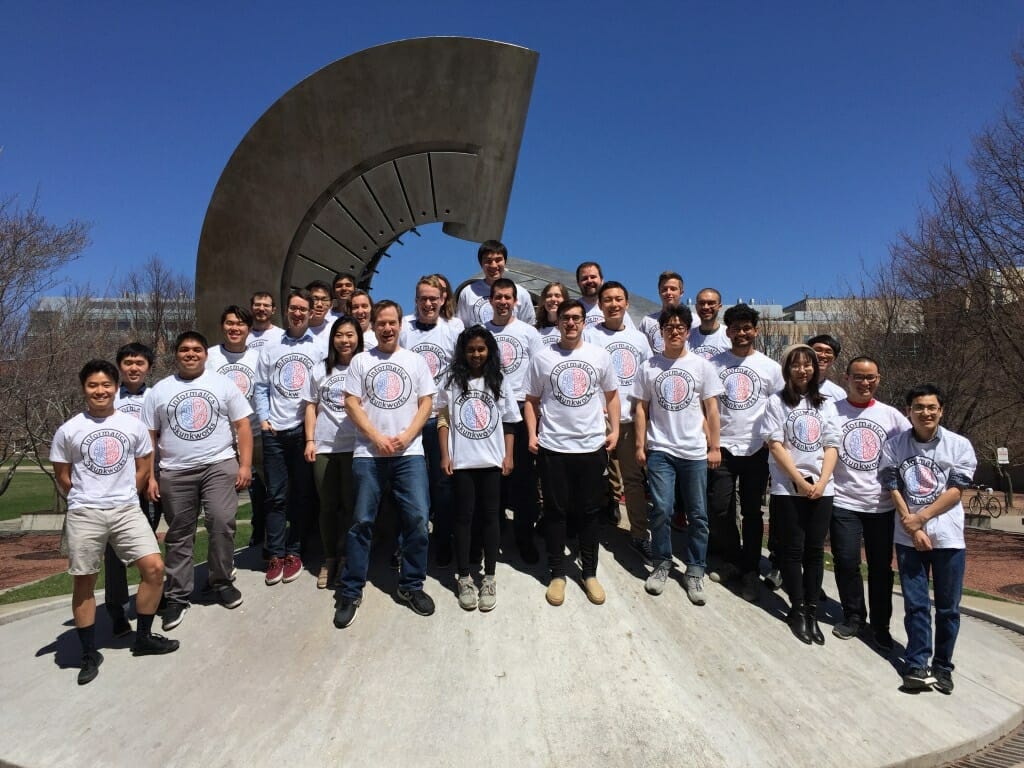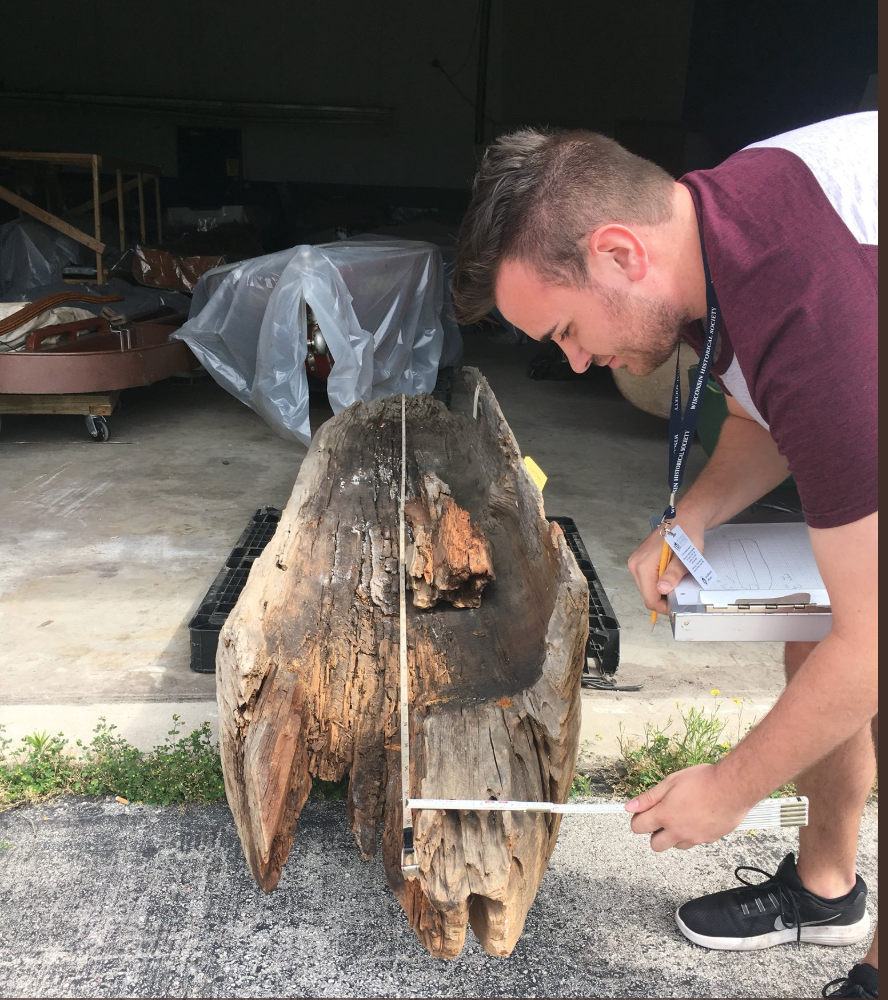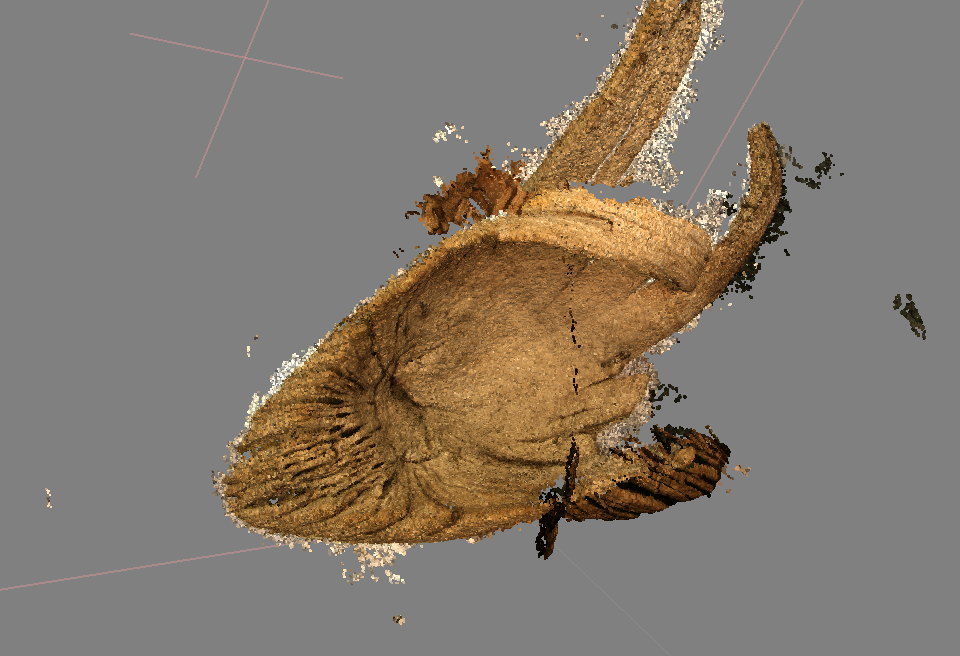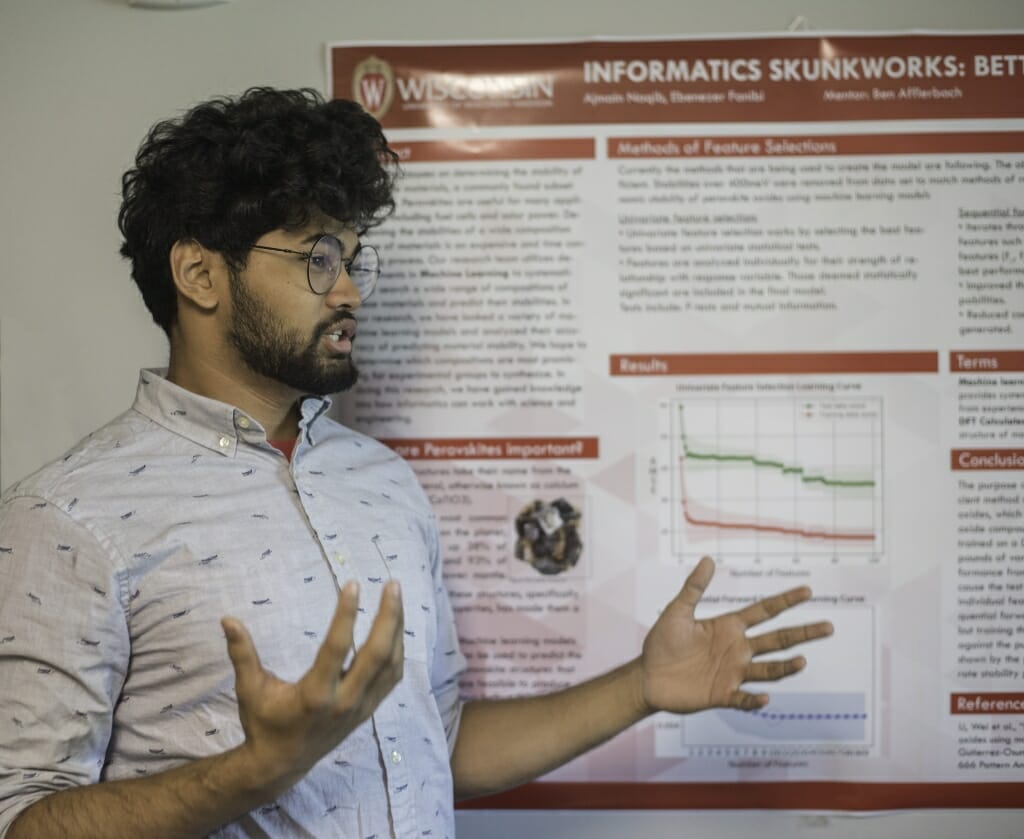WISCIENCE expands capacity for undergraduates new to research to pursue dream projects

Ajmain Naqib, recipient of one of 17 WISCIENCE Summer Research Scholarships, poses with the rest of his Materials Science and Machine Learning lab. CREDIT: Ajmain Naqib
In summers past, senior Ryan Smazal labored under a blazing sun at a summer camp. This time around, however, he kept busy in the field and in the lab researching Wisconsin dugout canoes, thanks to the WISCIENCE Summer Research Scholarship.
Smazal, a History and Political Science major, had never done fieldwork before. Essays were more his purview, he said. But when he came across the opportunity, it was too good to pass up, so he developed a formal research proposal and took a shot at the scholarship. He, along with 16 other undergraduates, were awarded $1,500 towards their tuition to take three credits of independent study to work on their dream projects and one credit for a research-oriented course.
“It’s definitely a big change but one that I think easily fits in with my majors and one that my majors will complement for sure,” Smazal said.

Ryan Smazal measures a dugout canoe for his research project. CREDIT: Dr. Sissel Schroeder and Tamara Thomsen, Wisconsin Historical Society
Working with Dr. Sissel Schroeder, Chair of the Department of Anthropology, a team within the Wisconsin Historical Society, and Michael Wiemann from the USDA Forestry Lab, Smazal has spent the summer – and will continue into the fall – surveying all but a few of the 36 dugout canoes across the state. The end goal is feeding all the measurements and documentation into a database with the hopes of creating a 3d, virtual museum of canoes.
Made out of hollowed tree trunks, dugout canoes are the oldest boats archeoligists have found, dating back 8,000 years to the Neolithic Stone Age. Native Americans were particularly adept at crafting these boats, including in Wisconsin, where they are displayed in museums across the state Smazal’s end goal is feeding all the measurements and documentation collected from his field research into a database with the hopes of creating a 3d, virtual museum of these historic canoes.

A 3d model of a dugout canoe Smazal made in Agisoft Photoscan. CREDIT: Dr. Sissel Schroeder and Tamara Thomsen, Wisconsin Historical Society
In its second year, the collaboration of Educational Innovation, Summer Term and the Wisconsin Institute for Science Education and Community Engagement (WISCIENCE) expanded its efforts to provide authentic, mentored research experiences by awarding scholarships to both students new to research as well as those who had have had more than two semesters of research experience.
The program is especially well-suited to providing a solid foundation in research for those new to the discipline, as they have time to dedicate to research during the summer. And in the Entering Research seminar, these students will develop necessary professional development skills.
A breadth of research topics are possible under the scholarship, too, which allows students to study what they are most passionate about.
Angeline Mboutngam, working with Yolanda Tolson-Eveans (School of Pharmacy) and Kevin Dwyer from Where is Care, spent the summer studying ways to close the information gap between community members and health insurance service providers to help low-income uninsured and underinsured patients access the health services they need.
Amanda Pandl quite differently worked with Dr. Anthony Auger and Liza Chang in the Department of Psychology to understand the effects of opioid system disruption in the developing brain on later juvenile behaviors in a rodent model.
Other students worked on projects from disciplines including Biomedical Engineering, Agronomy and Plant Pathology.

Ajmain Naqib presenting his project’s findings at a poster session after a summer of research. CREDIT: Ajmain Naqib
“The students in the program report large gains in confidence in their research and science communication skills, and that is nowhere more apparent than during their poster presentations. It is really remarkable how much their understanding grows during this experience” according to Amber Smith, Director of Research Mentor and Mentee Training for WISCIENCE.
Ajmain Naqib was already working in a lab when he applied for the scholarship. Once he was awarded the scholarship, he got to work alongside Professor Dane Morgan and mentor Ben Afferbach on how to reduce the cost of producing solar panels.
Using machine learning, a subset of Artificial Intelligence, Naqib and others in the lab have worked to predict the stabilities of a range of solar cell manufacturing materials called Perovskites. By training and optimizing the models for accuracy, it will make the process more time and cost efficient than the traditional methods.
Naqib said the 15 hours a week he spent in the lab have paid off – both monetarily and in terms of his understanding of machine learning and research.
“I’m learning a lot,” Naqib said. “I feel like I’ve learned a lot more in research than I do in class because this is more tangible. I’m using the knowledge I learn in class … in research, which helps me grasp certain concepts.”
For more information about the WISCIENCE Summer Research Scholarship, contact Amber Smith, 608-265-0850, amber.smith@wisc.edu.



